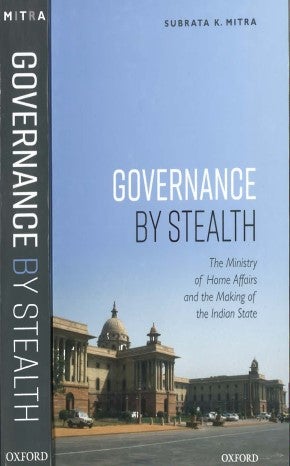
| Book Title: | ‘Governance by Stealth’: The Ministry of Home Affairs and the Making of the Indian State |
| Author/s: | Subrata Mitra |
| Abstract: | The Indian government’s Ministry of Home Affairs, which succeeded the Home Department under the British colonial rule, is a remarkable example of institutional resilience. Governance by Stealth argues that the Ministry, with its expertise in ‘maximum order with the minimum use of force’, was instrumental for the department to acquire a secure niche within the colonial structure. Subrata Mitra answers the key question of how a colonial institution whose key task was to hold Indian nationalism at bay became the architect of post-colonial state and nation. It traces the journey of the ministry through its multiple roles as the keeper of public order, mentor to public services and the invisible sinews of the state that holds the vibrant democracy and assertive regions together. The sound analysis is based on declassified files of the Ministry of Home Affairs, correspondences, biographies and interviews. Overall, through an examination of the durability and roles of India’s Ministry of Home Affairs, the book aptly records the transformation of the subject ‘ministry’ over a period of 50 years after India’s |
| Book Review : | ‘Governance by Stealth’: The Ministry of Home Affairs and the Making of the Indian State |
| Reviewer/s: | Vinod Rai |
| Date: | 13 December 2021 |
| Read More |
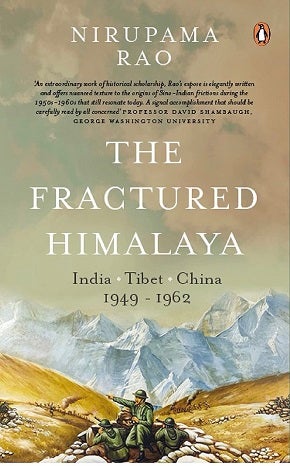
| Book Title: | The Fractured Himalayas: India, Tibet, China 1949-1962 |
| Author/s: | Nirupama Rao |
| Abstract: | India’s relations with China remain an absorbing theme for policy makers and international affairs analysts; more so at present when their armed forces stand eyeball to eyeball in the Ladakh region of the Himalayas, sharpening their competition and contest for strategic space in India’s immediate neighbourhood and the larger Indo-Pacific region. Nirupama Rao’s The Fractured Himalayas takes us to the roots of conflict and rivalry between the Asian giants. The author has impeccable credentials to write on India-China relations, as she has not only been India’s Ambassador in China but also its Foreign Secretary. What she offers in her book is a carefully knit narrative based on meticulous scrutiny of the facts derived from copious research, buttressed by valuable and nuanced insights. Her narrative presents a robust Indian perspective on how China’s determination to occupy and control Tibet and dominate the Himalayas shattered India’s vision of building a civilisationally defined relationship of co-existence with China for the peace and prosperity of Asia. |
| Book Review : | The Fractured Himalayas: India, Tibet, China 1949-1962 |
| Video Interview: |
Have a meaningful description of the video here
|
| Date: | 9 November 2021 |
| Read More |
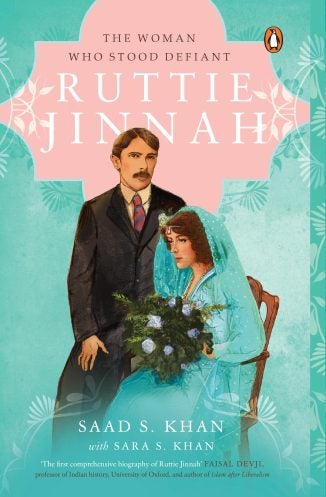
| Book Title: | Ruttie Jinnah: The Woman Who Stood Defiant |
| Author/s: | Saad S Khan, Sara S Khan |
| Abstract: | Ruttie Jinnah: The Woman Who Stood Defiant is a biography that unravels the mystery around Ruttie Jinnah, the wife of Mohammad Ali Jinnah, the founder of Pakistan. Besides her personality, the book makes an attempt to detail her role in political developments both during her lifetime and afterward. It tries to answer questions like ‘Did she impact the creation of Pakistan? Did she have a posthumous influence on Pakistan’s polity? Does her legacy still affect Indo-Pak relations?
In her own right, Ruttie Jinnah was a fierce nationalist who stood up against British rule. Her conversion from Zoroastrianism to Islam and the subsequent marriage to Jinnah brought a lot of controversy and may well have resulted in her been shrouded out of the limelight. The book is, therefore, a deep dive into the short life of an understudied figure in history who had an undisputed influence on Jinnah and an unacknowledged role in the shaping of the geopolitical landscape of contemporary South Asia. |
| Book Review : | Ruttie Jinnah: The Woman Who Stood Defiant |
| Reviewer/s: | Imran Ahmed |
| Video Interview: |
Have a meaningful description of the video here
|
| Date: | 8 November 2021 |
| Read More |
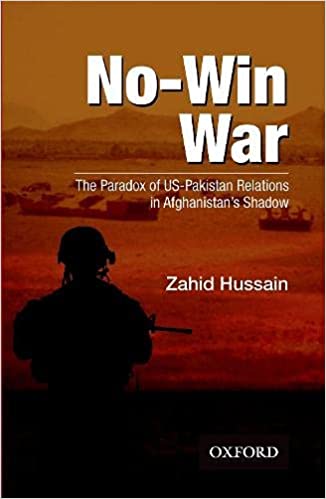
| Book Title: | No-Win War: The Paradox of US-Pakistan Relations in Afghanistan’s Shadow |
| Author/s: | Zahid Hussain |
| Abstract: | No-Win War explores the ups and downs in the relations between Pakistan and the United States (US) in the post-9/11 years. An uneasy relationship of several turbulences that has swung in a cyclical pattern of close engagement to almost the point of estrangement, it is one that cannot fully break up.
Against this background, the book turns to the underlying causes of tension over the years. Unlike most studies on the subject, No-Win War investigates the important connection between internal political developments in Pakistan and American foreign policy as well as the influence of regional geopolitical developments on Pakistan’s domestic politics. Hussain’s new book also throws light on the implications for Afghanistan in the so-called war on terror and the cost of Pakistan’s old ties with Taliban and the close alignment with the US. |
| Book Review : | No-Win War: The Paradox of US-Pakistan Relations in Afghanistan’s Shadow |
| Reviewer/s: | Chilamkuri Raja Mohan |
| Video Interview: |
Have a meaningful description of the video here
|
| Date: | 11 October 2021 |
| Read More |
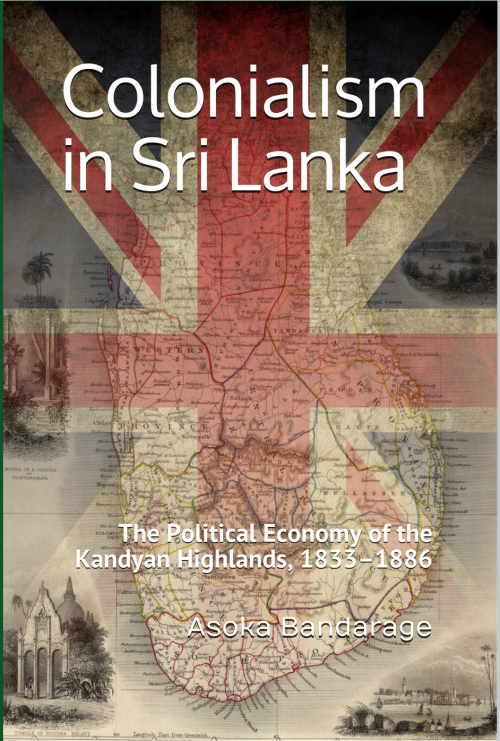
| Book Title: | Colonialism in Sri Lanka: The Political Economy of the Kandyan Highlands, 1833–1886 |
| Author/s: | Asoka Bandarage |
| Abstract: | The classic work on the history of British colonialism in Sri Lanka, originally published by Mouton/De Gruyter in 1983, focuses on the impact of the British plantation economy and colonial political authority on the Kandyan Highlands in the 19th century. In 2020, this second edition was published with an extensive chapter on new colonialism in Sri Lanka, with a comparative perspective on contemporary great power struggles.
The book assesses the question of Sri Lankan sovereignty today, situating it within the context of the regional expansion of China, India and the United States. Parallels are drawn to British colonialism in the island nation to address the modern debate on development and underdevelopment through the case study of a key period of British empire-building between 1833 and 1886. Dr Bandarage contends that the impacts of 19th century colonialism are still felt today and are hence important to understand in moving towards a sovereign, peaceful and unified Sri Lanka. |
| Book Review : | Colonialism in Sri Lanka: The Political Economy of the Kandyan Highlands, 1833–1886 |
| Reviewer/s: | Chulanee Attanayakke |
| Video Interview: |
Have a meaningful description of the video here
|
| Date: | 1 October 2021 |
| Read More |
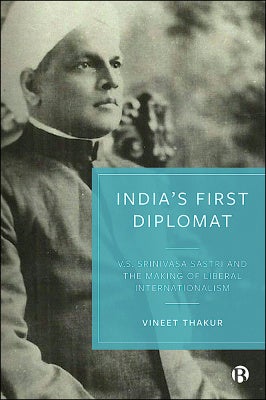
| Book Title: | India's First Diplomat: V. S. Srinivasa Sastri and the Making of Liberal Internationalism |
| Author/s: | Vineet Thakur |
| Abstract: | A celebrated politician, scholar and diplomat in his lifetime, V.S. Srinivasa Sastri (1869-1946) is now a largely forgotten figure. Hailed as the “very voice of international conscience”, Sastri advocated for racial equality as well as securing the rights of Indians at home and abroad. This book journeys through Sastri’s professional life, offering a diplomatic biography of his years as pre-independent India’s illustrious ambassador in the 1920s. It examines his involvement in key conferences and agreements while also throwing light on the contradictions of being a native diplomat, including being treated as an equal on the world stage while lacking the same equality at home, and the risk of legitimising the colonial project. |
| Book Review : | India’s First Diplomat: V. S. Srinivasa Sastri and the Making of Liberal Internationalism |
| Reviewer/s: | Karthik Nachiappan |
| Video Interview: |
Have a meaningful description of the video here
|
| Date: | 10 September 2021 |
| Read More |
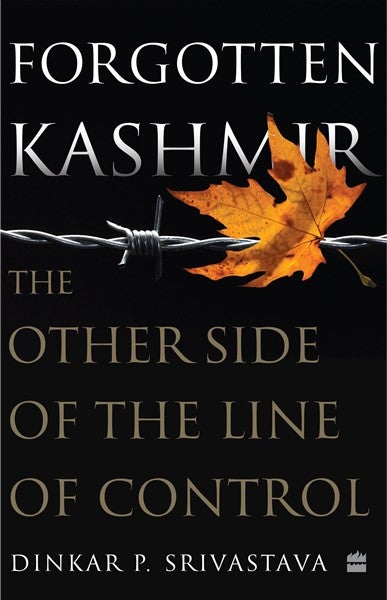
| Book Title: | Forgotten Kashmir: The Other Side of the Line of Control |
| Author/s: | Dinkar P Srivastava |
| Abstract: | Kashmir has been contentious for both India and Pakistan for over seven decades now. However, Forgotten Kashmir: The Other Side of the Line of Control focuses on Pakistan-occupied Kashmir, examining the Pakistani narrative in the light of Pakistani sources. Written by a former diplomat, it includes major developments such as the tribal invasion, the Karachi and Simla agreements as well as the China-Pakistan Economic Corridor. |
| Book Review : | Forgotten Kashmir: The Other Side of the Line of Control |
| Reviewer/s: | Chilamkuri Raja Mohan |
| Video Interview: |
Have a meaningful description of the video here
|
| Date: | 27 August 2021 |
| Read More |
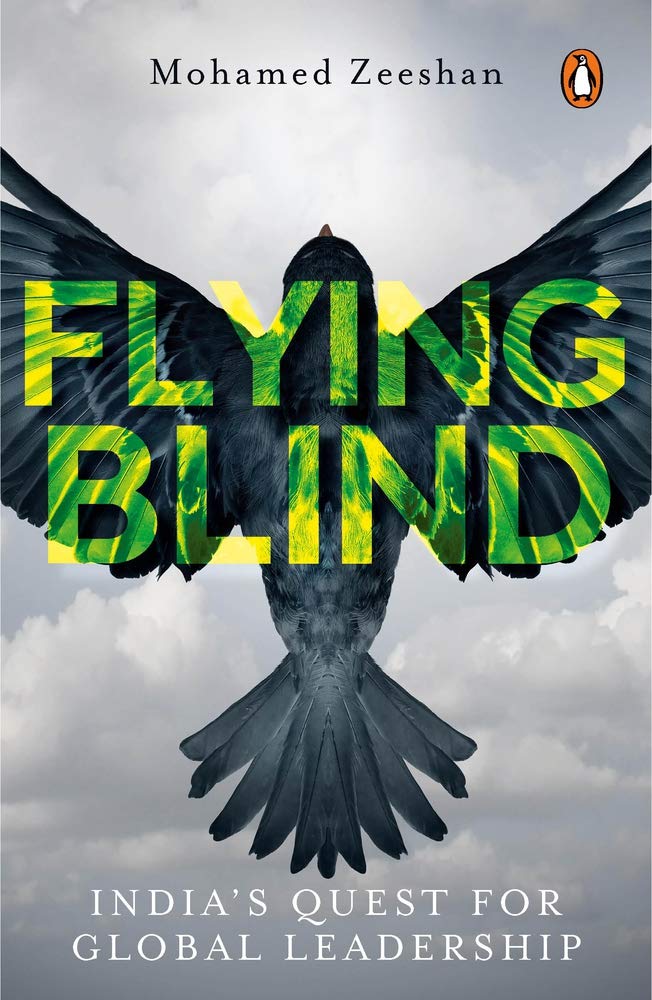
| Book Title: | Flying Blind: India’s Quest for Global Leadership |
| Author/s: | Mohammed Zeeshan |
| Abstract: | With India’s growing ambitions of becoming a global power, it is important for the country to revise its foreign policy strategy by choosing to be more pro-active. It should now look at converting its ‘Neighbourhood First’ policy into an asset while also not remaining a fence-sitter. Mohammed Zeeshan’s book looks at how foreign policy in India is practiced, the dichotomies arising out of internal political compulsions and the changing world order with the rise of China. |
| Book Review : | Flying Blind: India’s Quest for Global Leadership |
| Reviewer/s: | Nithya Subramanian |
| Video Interview: |
Have a meaningful description of the video here
|
| Date: | 20 August 2021 |
| Read More |
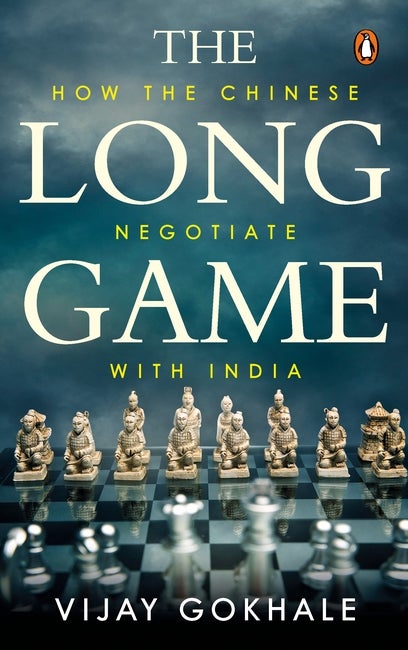
| Book Title: | The Long Game: How the Chinese Negotiate with India |
| Author/s: | Vijay Gokhale |
| Abstract: | The recent clashes between India and China in eastern Ladakh as well as the latter’s growing dominance in South Asia have put the spotlight back on the two neighbours. The Long Game: How the Chinese Negotiate with India delves into the dynamics of negotiations between these countries from the 1950s to the present time through the prism of six historical and recent events.
Vijay Gokhale, a career diplomat and India’s former foreign secretary, has served as the country’s ambassador to China. His extensive experience in Chinese politics and diplomacy is evident in the book, which contains many interesting examples of Chinese diplomatic strategy such as China being a master in manipulating time, falling back on the power of silence and emphasis on the written word. |
| Book Review : | The Long Game: How the Chinese Negotiate with India |
| Reviewer/s: | C Raja Mohan |
| Video Interview: |
Have a meaningful description of the video here
|
| Date: | 13 August 2021 |
| Read More |
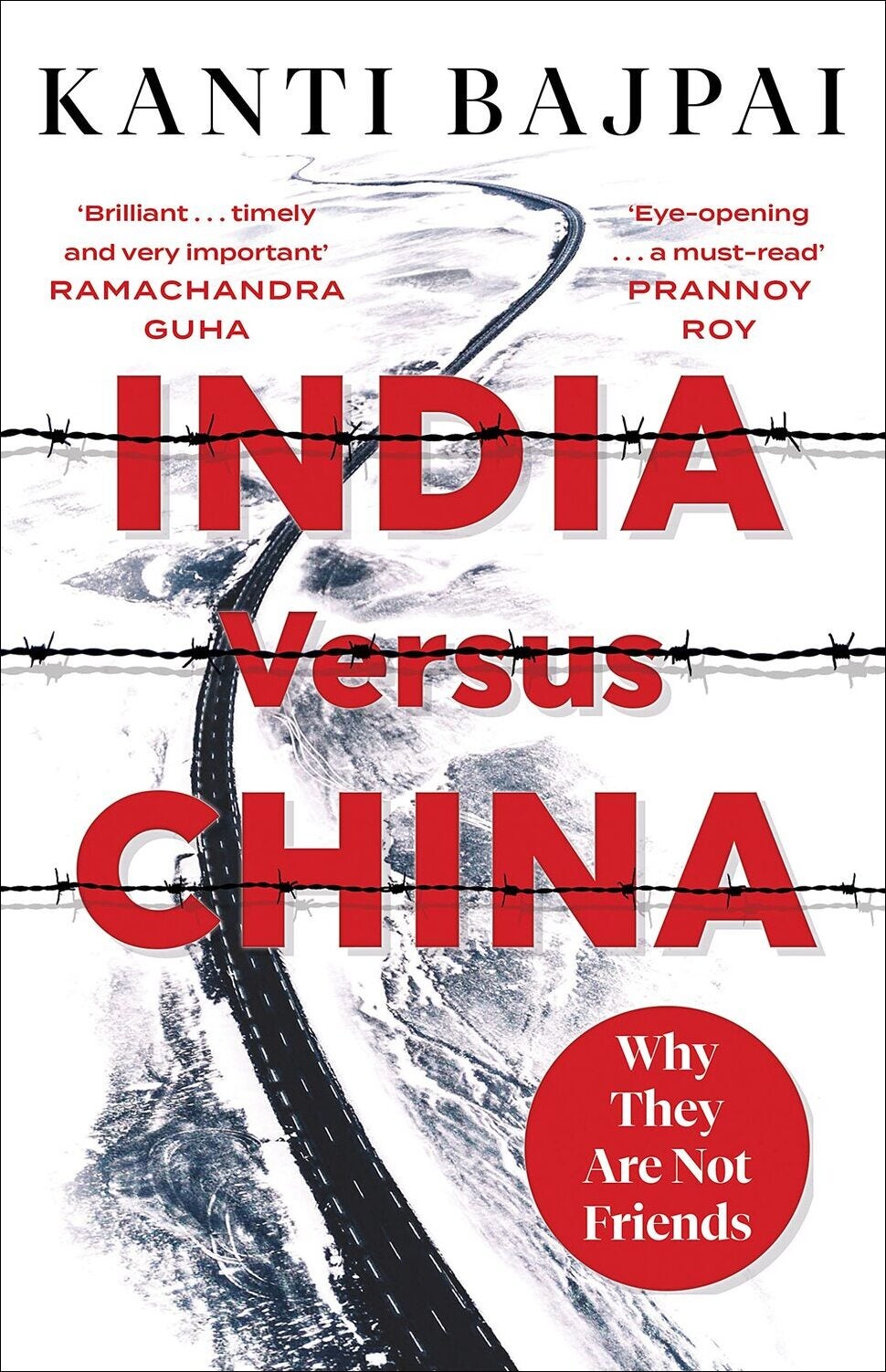
| Author/s: | Kanti Bajpai |
| Abstract: | Kanti Bajpai’s new book provides an in-depth analysis of the complex relationship between India and China over the past 60 years. Against the backdrop of the Galwan clashes in 2020, which has further damaged relations between the two neighbours, Bajpai tries to answer the question of “why they are not friends” through four Ps – “perceptions”, “perimeters”, “partnerships” and “power”. He examines the two countries’ perceptions and prejudices about each other, their continuing disagreements over the border, their changing partnerships with the United States and Russia, and the growing power asymmetry between them.
Historically, except for a few brief periods, the relationship between India and China has never been friendly. But the path ahead for them, Bajpai argues, will be a difficult one. The future could witness intensified military confrontations, including violent border clashes. Crucial to their relationship will be India’s inability to reduce the enormous gap with China in economic, military as well as soft power. |
| Reviewer/s: | Yogesh Joshi |
| Video Interview: |
Have a meaningful description of the video here
|
| Date: | 29 July 2021 |
| Read More |
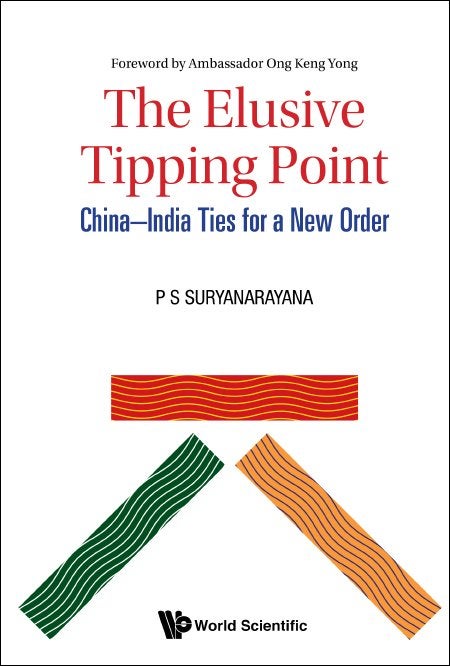
| Book Title: | The Elusive Tipping Point: China-India for a New Order |
| Author/s: | P S Suryanarayana |
| Abstract: | India and China share a complex relationship, which has in the recent times, witnessed frequent diplomatic and strategic crises. The book takes the reader through not just the contemporary issues that plague the two countries, but also provides rich historical insights. From linking the Tibet and Kashmir issues to the tense Doklam and Galawan standoffs, the Belt and Road Inititive to 5G technologies, it covers a gamut of topics relevant to the two countries. The author, a journalist turned academic, has interviewed a number of South and East Asian leaders, diplomats and officials dealing with strategic affairs. The book is based on such in-person interviews, formal as well as informal. Ultimately, it is a quest for that tipping point which could result in a positive partnership between the two countries. |
| Book Review : | The Elusive Tipping Point: China-India for a New Order |
| Reviewer/s: | Nithya Subramanian |
| Video Interview: |
Have a meaningful description of the video here
|
| Date: | 25 June 2021 |
| Read More |
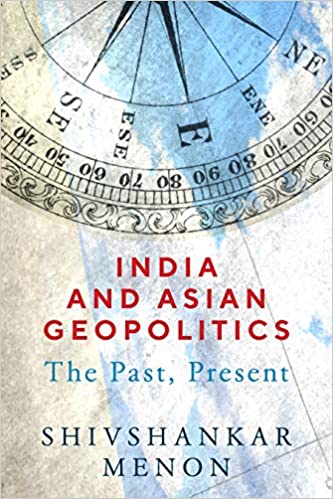
| Book Title: | India and Asian Geopolitics: The Past, Present |
| Author/s: | Shivshankar Menon |
| Abstract: | What drives India’s foreign policy and national security interests and how does India aim to achieve them? In ‘India and Asian Geopolitics: The Past, Present’, Shivshankar Menon explores the past, present and future of India’s engagement with Asia and the world by locating its policies in the geopolitical drivers of geography, history, economics and demography. These long-term drivers of Indian foreign policy explain both continuity and change in its approach to the world. The geopolitical framework also helps in exploring India’s options in Asia’s intensely contested strategic space as China and the United States contest for primacy in the region. |
| Book Review : | India and Asian Geopolitics: The Past, Present |
| Reviewer/s: | C Raja Mohan |
| Video Interview: |
Have a meaningful description of the video here
|
| Date: | 28 May 2021 |
| Read More |
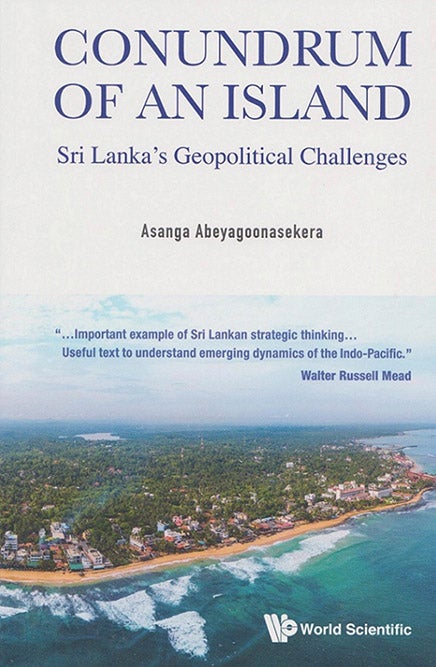
| Book Title: | Conundrum of an Island: Sri Lanka’s Geopolitical Challenges |
| Author/s: | Asanga Abeyagoonasekera |
| Abstract: | Conundrum of an Island is a compilation of essays on longstanding political and cultural fissures that Sri Lanka faces. With the intensification of great power competition in the Indian Ocean and the triangular maritime power dynamics among the United States, China and India, Sri Lanka is at the heart of this strategic geography, with several challenges and opportunities. The book offers an in-depth discussion on important themes like the Easter day terror attack and national security, implications of China’s Belt and Road Initiative, challenges in sustaining democracy, combating a pandemic and domestic political stability, among others. Most of the essays capture the domestic viewpoint from which a wider global landscape is mapped, while also attempting to find connections and patterns towards greater geopolitical influence and its impact on domestic politics. |
| Book Review : | Conundrum of an Island: Sri Lanka’s Geopolitical Challenges |
| Reviewer/s: | Nithya Subramanian |
| Video Interview: |
Have a meaningful description of the video here
|
| Date: | 11 May 2021 |
| Read More |
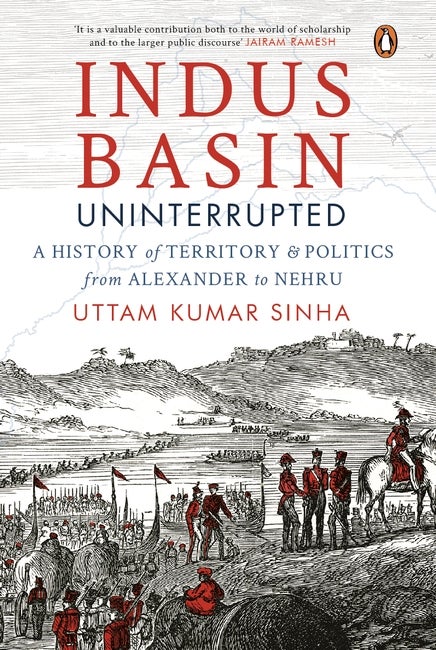
| Book Title: | Indus Basin Uninterrupted – A History of Territory & Politics from Alexander to Nehru |
| Author/s: | Uttam Kumar Sinha |
| Abstract: | Indus Basin Uninterrupted, with an easy narration and rich archival material, brings alive a meandering journey of peace, conflict and commerce on the Indus basin. The Indus system of rivers, as a powerful symbol of the passage of time, represents not only the interdependence and interpenetration of land and water but equally an unfolding of political identities, social churnings and economic returns. From Alexander’s campaign to Muhammad-bin-Qásim crossing the Indus and laying the foundation of Muslim rule in India; from the foreign invaders and their ‘loot and scoot’ to the Mughal rulers’ perspective on hydrology and water use; from the British ‘great game’ on the Indus basin to the bitter and bloody Partition; and finally, as a historical pause, the signing of the Indus Waters Treaty, this book is a spectrum of spectacular events, turning points and of personalities and characters, whose actions were full of marvel. |
| Book Review : | Indus Basin Uninterrupted – A History of Territory & Politics from Alexander to Nehru |
| Reviewer/s: | John Joseph Vater |
| Video Interview: |
Have a meaningful description of the video here
|
| Date: | 23 April 2021 |
| Read More |
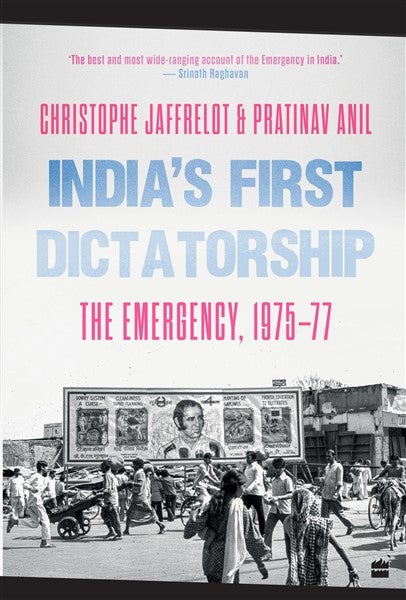
| Book Title: | India’s First Dictatorship – The Emergency, 1975-77 |
| Author/s: | Christophe Jaffrelot, Pratinav Anil |
| Abstract: | In June 1975, Indian Prime Minister Indira Gandhi imposed a state of Emergency, resulting in a 21-month suspension of democracy. In India’s First Dictatorship, Christopher Jaffrelot and Pratinav Anil explore this constitutional dictatorship of unequalled impact. Along with focusing on Mrs Gandhi and her son, Sanjay, the book equally exposes the facilitation of authoritarian rule by Congressmen, Communists, trade unions, businessmen and the urban middle class, as well as the complacency of the judiciary and media. While a tiny minority of citizens fought for democracy, an even greater number of people bowed to this strong woman in power. Yet, the Emergency was neither a parenthesis nor a turning point but a concentrate of a style of rule that is very much alive today. |
| Book Review : | The Authoritarian Streak in Indian Democracy |
| Reviewer/s: | Diego Maiorano |
| Date: | 17 March 2021 |
| Read More |

| Book Title: | Remittances and International Development: The Invisible Forces Shaping Community |
| Author/s: | Sabith Khan, Daisha M Merritt |
| Abstract: | Sabith Khan and Daisha M Merritt explore the distinct socio-economic aspects of migration and remittance by using two case studies: the migration corridors between Saudi Arabia and India, and between the United States and Mexico. In their book titled Remittances and International Development: The Invisible Forces Shaping Community, the authors highlight the evolution of individual migration to the institutionalisation of philanthropy through the diaspora. Remittance is shaping modern societies silently, from changing social phenomena to governments’ sustainable development agendas in Asia and America. The book will be of great interest to both academicians and policymakers in understanding the various aspects of migration and remittance, including from a soft-power lens. |
| Book Review : | Money and Migration |
| Reviewer/s: | Masudur Rahman |
| Date: | 15 February 2021 |
| Read More |

| Book Title: | Naoroji - Pioneer of Indian Nationalism |
| Author/s: | Dinyar Patel |
| Abstract: | Dadabhai Naoroji, was a 19th-century activist who founded the Indian National Congress and was the first person of India origin who became a member of the British House of Commons. In this timely book, Dinyar Patel examines the extraordinary life of this foundational figure in India’s modern political history, a devastating critic of British colonialism who forged ties with anti-imperialists around the world and established self-rule or Swaraj as India’s objective.
Only self-rule, he declared, could remedy the economic ills brought about by British control in India. In this episode, Dinyar Patel discussed the background and details of the book with Ronojoy Sen. |
| Book Review : | Naoroji – Pioneer of Indian Nationalism |
| Reviewer/s: | Ronojoy Sen |
| Video Interview: |
Have a meaningful description of the video here
|
| Date: | 22 January 2021 |
| Read More |
Load more


